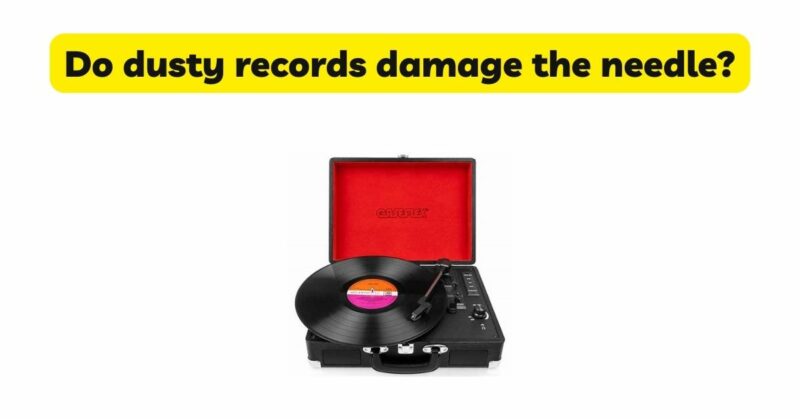Vinyl records have made a remarkable comeback in recent years, captivating music enthusiasts with their warm sound and nostalgic appeal. However, one concern that often arises among collectors and enthusiasts is whether playing dusty records can damage the turntable needle. In this article, we will delve into the effects of playing dusty records on turntable needles, examining the potential risks and consequences. By understanding the relationship between dust and needle damage, we can adopt proper cleaning techniques and maintenance practices to ensure optimal performance and longevity of our cherished vinyl collections.
The Vulnerability of Turntable Needles: Turntable needles, also known as stylus or cartridges, are delicate components responsible for tracking the grooves of vinyl records and converting the physical vibrations into electrical signals. Given their small size and intricate design, they are vulnerable to external factors, including dust.
Dust as an Abrasive Agent: Dust particles, even though seemingly innocuous, can act as abrasive agents when they come into contact with the turntable needle. The tiny particles can embed themselves in the grooves of the record and create friction as the needle traverses the surface. This friction can lead to wear and tear on the needle, ultimately affecting its performance and longevity.
Impact on Tracking Ability: Dust on a record’s surface can interfere with the tracking ability of the needle. As the needle encounters dust particles, it may struggle to maintain a consistent and accurate contact with the groove walls. This can result in compromised tracking and potential skipping or jumping of the needle across the record, disrupting the listening experience.
Increased Stylus Pressure: To compensate for the presence of dust and maintain contact with the grooves, the turntable needle may exert additional pressure. This increased stylus pressure can put added stress on the needle and lead to faster wear and potential damage. Furthermore, the additional pressure can cause the needle to dig deeper into the grooves, increasing the risk of groove damage and compromising sound quality.
Sound Quality Degradation: Dust particles on the record can introduce unwanted noise and affect the overall sound quality. As the needle encounters dust, it can generate pops, clicks, and crackling sounds during playback. These artifacts can obscure the original recording and diminish the fidelity and clarity of the music. Therefore, it is essential to keep records as dust-free as possible to ensure an optimal listening experience.
Proper Cleaning Techniques: To mitigate the risks associated with dusty records, adopting proper cleaning techniques is crucial. Dry brushing with anti-static record brushes or using a carbon fiber brush can help remove surface dust from records. Additionally, wet cleaning methods using record cleaning solutions and specialized cleaning machines can provide more thorough cleaning, removing embedded particles and restoring the record’s surface.
Regular Maintenance and Storage: Beyond cleaning records, regular maintenance of turntable components is vital to minimize dust-related damage. Keeping the turntable platter, tonearm, and cartridge clean and dust-free ensures optimal performance and reduces the risk of dust particles finding their way onto the needle. Proper storage of records in protective sleeves or dust jackets also plays a crucial role in preventing dust accumulation.
Importance of Pre-Play Inspections: Before playing a record, it is prudent to inspect its condition and clean it if necessary. Visual inspection can reveal any visible dust or debris on the surface. In cases where dust is present, using a brush or cleaning method to remove the particles can help protect the needle from unnecessary wear and potential damage.
Conclusion: Playing dusty records can indeed pose risks to turntable needles, potentially leading to accelerated wear, compromised tracking, and degradation of sound quality. Dust particles act as abrasive agents, increasing friction and exerting additional pressure on the needle. By understanding the potential consequences and adopting proper cleaning techniques, enthusiasts can minimize the risks and ensure their turntable needles and vinyl collections are well-preserved. Regular cleaning, maintenance, and storage practices are crucial in prolonging the lifespan of both records and turntable components, allowing for a more enjoyable and enduring vinyl listening experience.


